Review of Yangtze Memory PC41Q: QLC flash memory particles, cacheless design with impressive performance
![]() 10/23 2024
10/23 2024
![]() 498
498
As Yangtze Memory's first QLC SSD targeting the commercial consumer PC market, the PC41Q is equipped with fourth-generation 3D flash memory chips and uses a PCIe Gen4×4 interface. The official announcement states that its maximum sequential read speed can reach 5700MB/s, positioning it in the "mainstream" market. The PC41Q adopts the HMB host memory buffer solution, featuring a cacheless design. Let's explore its actual performance together.
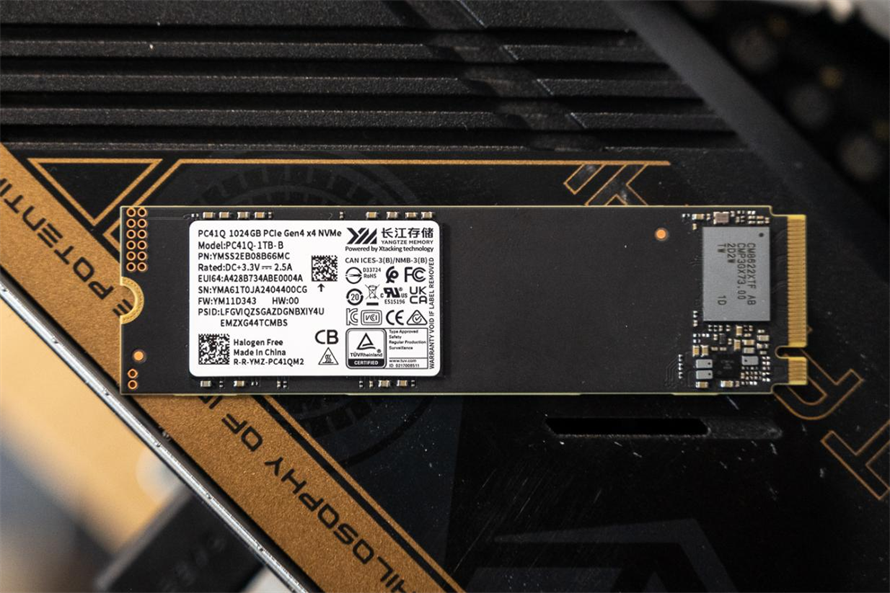
As a flash memory manufacturer, Yangtze Memory enjoys great commercial success with its popular storage products, thanks to its cutting-edge technology. The PC41Q boasts a low-key appearance with a single-sided PCB design, ideal for slim laptops. Its compact sticker contains essential information about the drive.
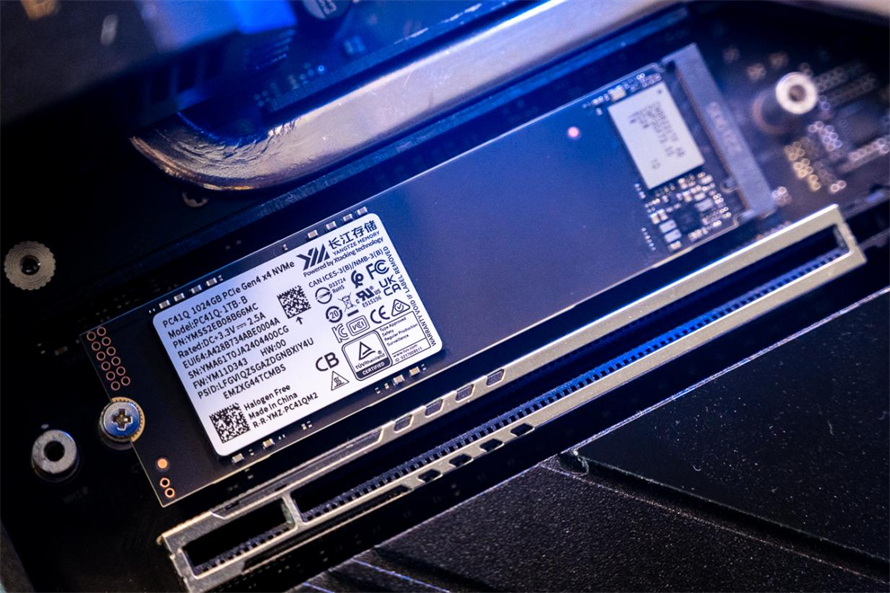
The Yangtze Memory PC41Q utilizes the advanced Xtacking 3.0 architecture, achieving a sequential read speed of up to 5700MB/s and excellent power efficiency, consuming just 2mW in PS4 mode. Our tested 1TB version boasts a write endurance of 300TBW, translating to a theoretical lifespan of 6144 days or approximately 16.8 years with daily writes of 50GB. Additionally, the drive is available in 512GB and 2TB capacities and comes in 2280 and 2242 form factors, suitable for desktops, slim laptops, and all-in-ones.
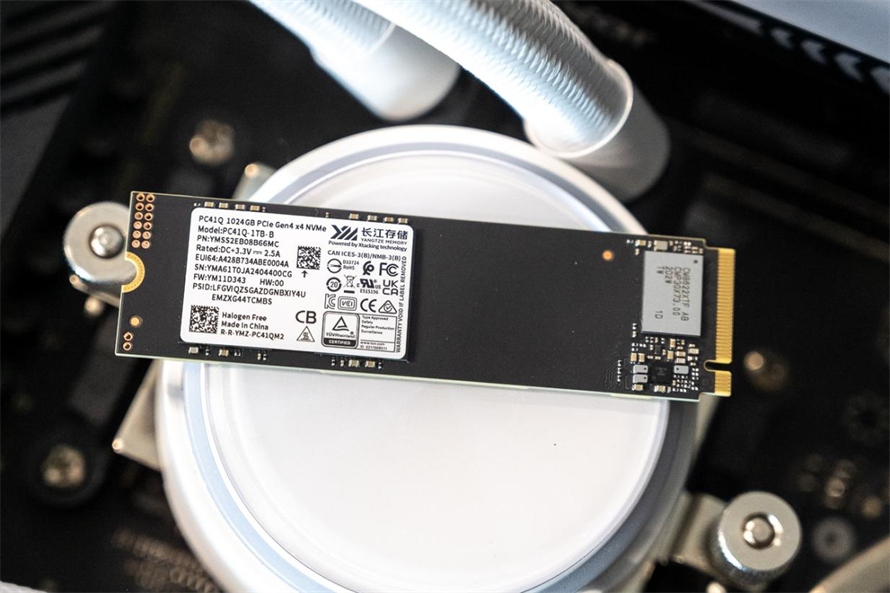
Let's delve into software and practical tests to assess the performance of the Yangtze Memory PC41Q. Our test platform comprises an AMD Ryzen 5 7600X processor paired with an ASRock X670E Taichi motherboard.
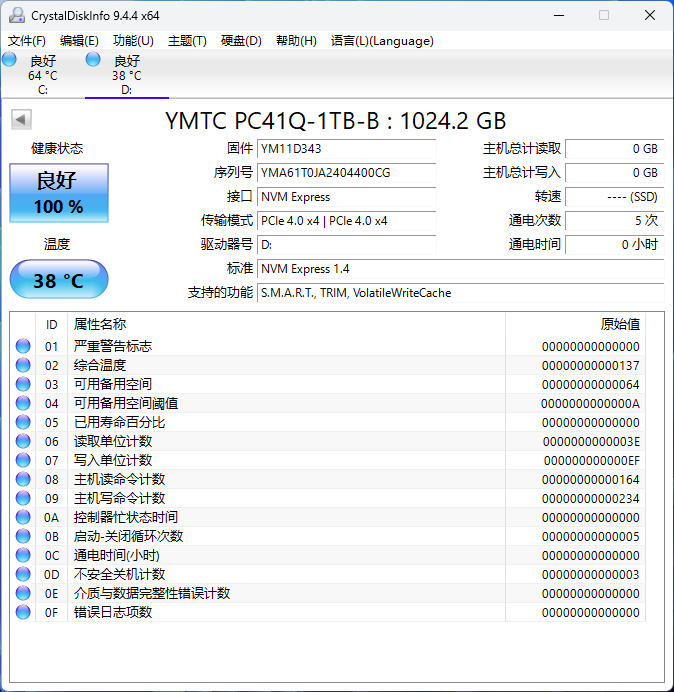
CrystalDiskinfo reveals the PC41Q's basics: PCIe 4.0×4 interface, NVMe 1.4 standard, and support for S.M.A.R.T., TRIM, and Volatile Write Cache.
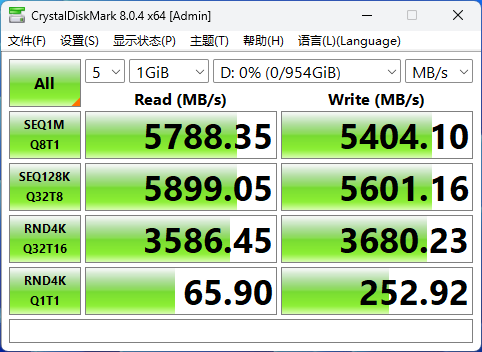
CrystalDiskMark tests show sequential write speeds of 5788MB/s and read speeds of 5404MB/s, surpassing the official claims. 4K random reads hit 65.9MB/s, while writes reach 252.9MB/s.
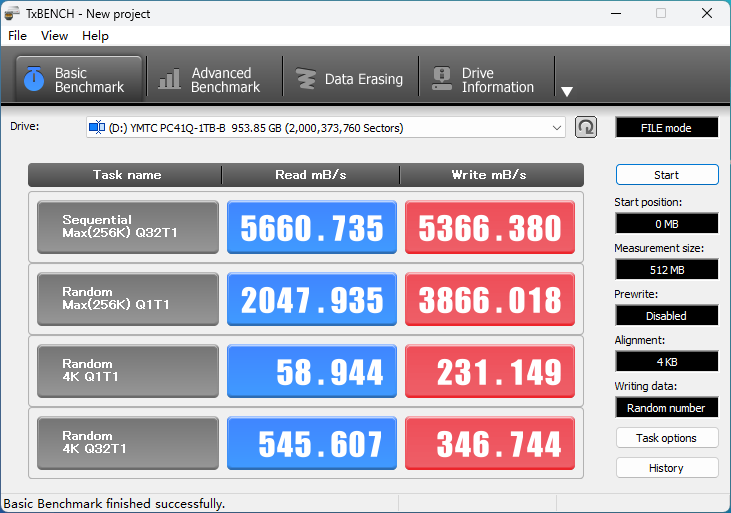
TxBench results mirror CrystalDiskMark's, with sequential read/write speeds of 5660MB/s and 5366MB/s, respectively, and 4K random read/write speeds close to those figures.

ATTO Disk Benchmark assesses continuous read/write performance across file sizes. The PC41Q demonstrates stability, peaking at 5.42GB/s read and 5.16GB/s write for files >512KB.

AJA System Test simulates professional video file transfers. With a 64GB, 3840×2160 UltraHD file, the PC41Q achieves 5038MB/s read and 4883MB/s write speeds.
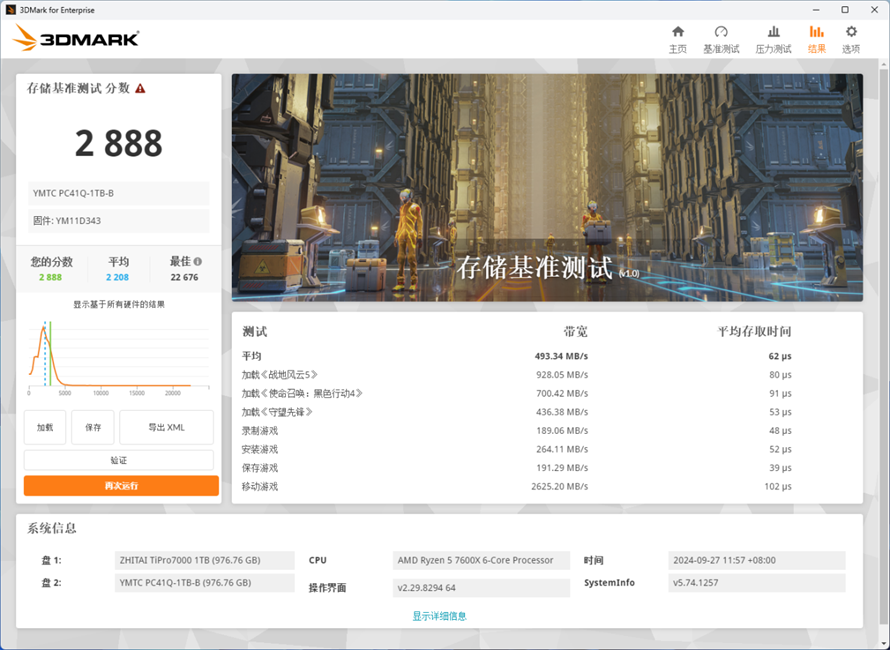
In gaming scenarios, 3DMark Storage Benchmark yields a total score of 2888, with average game installation and transfer speeds of 264.11MB/s and 2625.20MB/s, respectively, ensuring a smooth experience with large games.
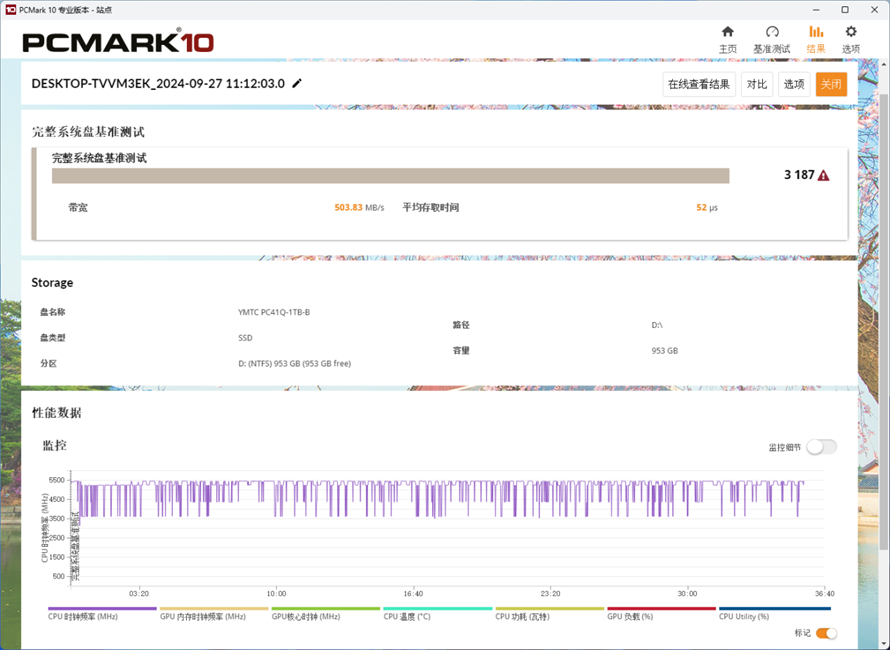
PCMark 10's Full System Drive Benchmark reveals a bandwidth of 503.83MB/s, average access time of 52μs, and an overall score of 3187.
The tests confirm the PC41Q's solid performance in standard SSD benchmarks. Given its HMB host memory buffer and cacheless design, how does it fare under sustained large file writes?
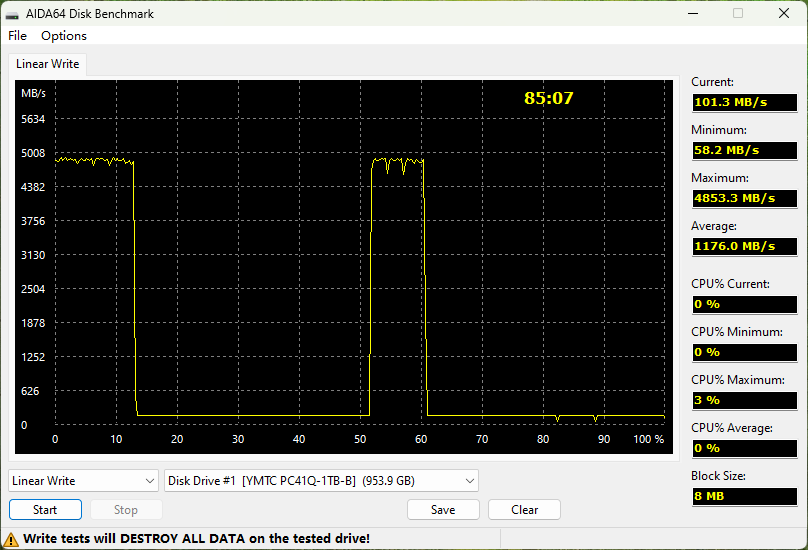
AIDA64 Disk Benchmark's full disk write test shows initial speeds of 4800+MB/s, dropping to ~100MB/s after ~15% written, then recovering to 4800+MB/s until ~62% written before dropping again. The average speed was 1176MB/s.
After exhausting the fixed SLC Cache, the PC41Q dynamically allocates SLC Cache to maintain write speeds, explaining the performance recovery. This hybrid cache strategy ensures excellent sustained write performance, catering to most users' needs.

In an empty drive state, the PC41Q wrote a ~97GB Far Cry 6 game package at an average speed of 3.41GB/s when copied from another flagship PCIe 4.0 SSD.
As a PCIe 4.0 drive, the Yangtze Memory PC41Q fulfills speed requirements. However, its stability and heat management deserve equal attention.
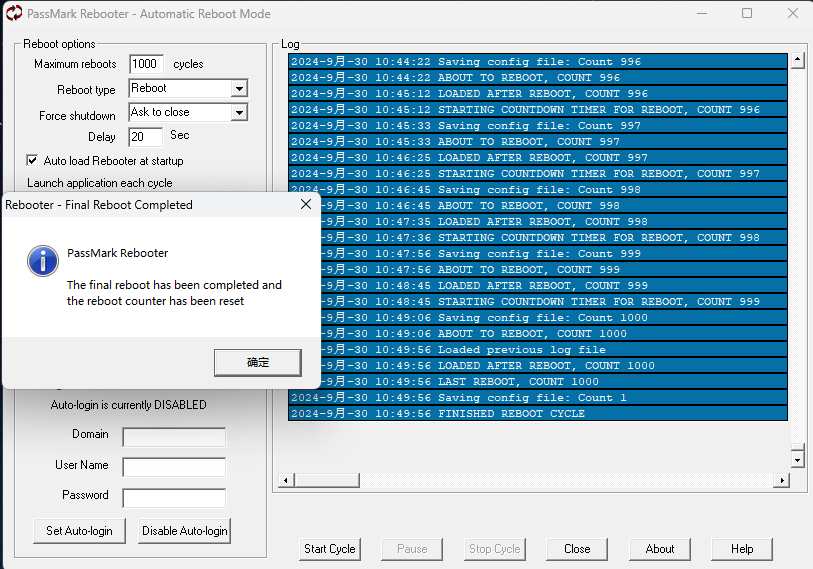
How stable is the PC41Q as a commercial consumer SSD? PassMark Rebooter's 1000 consecutive power cycle test confirms its reliability, with no errors encountered, underscoring its exceptional quality.
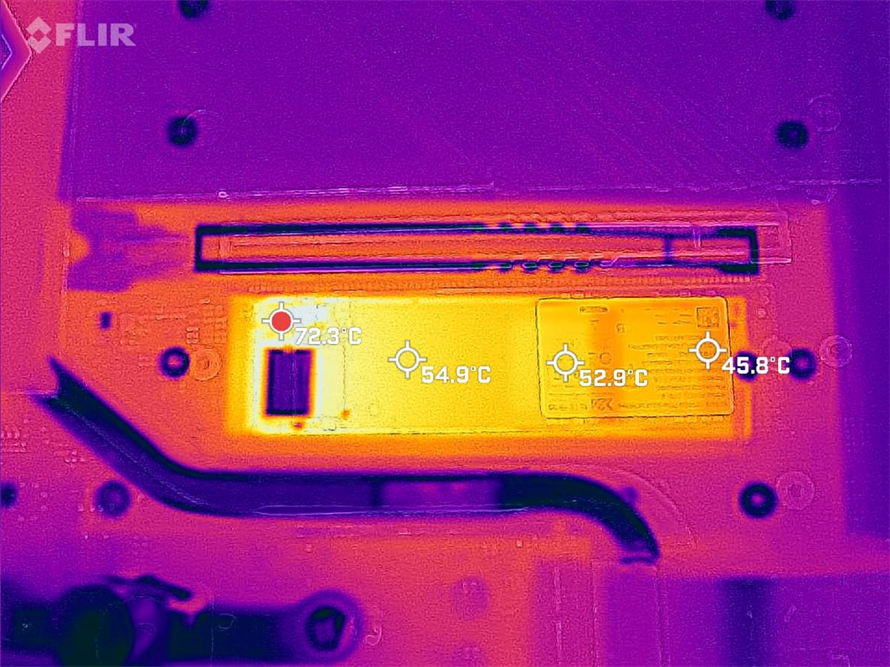
Finally, we assessed the PC41Q's thermal performance during CrystalDiskMark benchmarking. The controller chip reached ~72.3°C, while the flash memory hovered around 50-55°C, indicating good heat management.
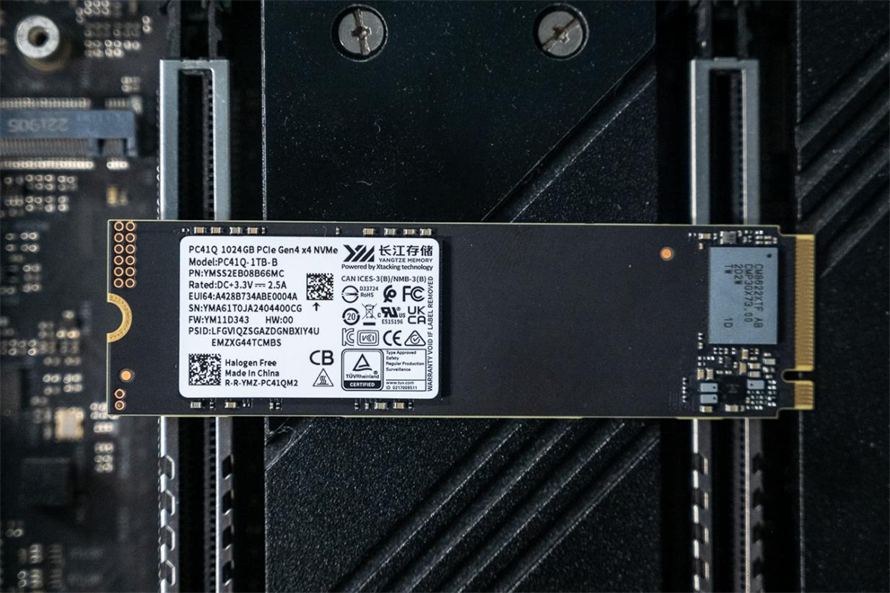
Conclusion:
The Yangtze Memory PC41Q is a precisely positioned product. Its cacheless design saves costs, while its advanced architecture and flash memory excel in media and gaming scenarios, boasting impressive stability and heat management. Expect to see this drive in more laptops, desktops, and OEM products in the future.








